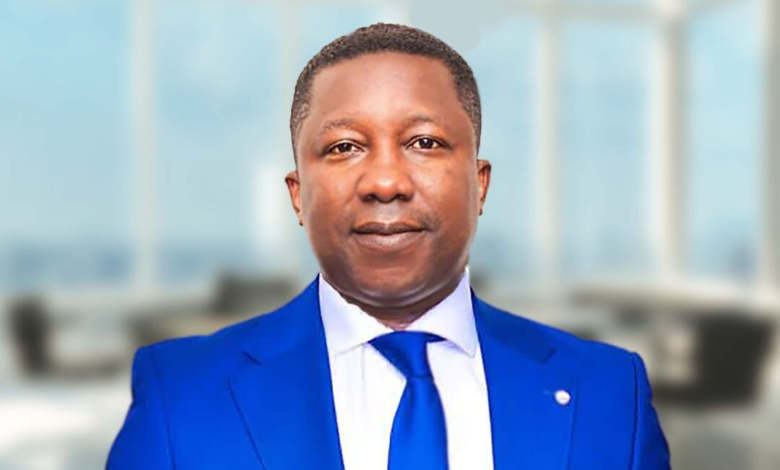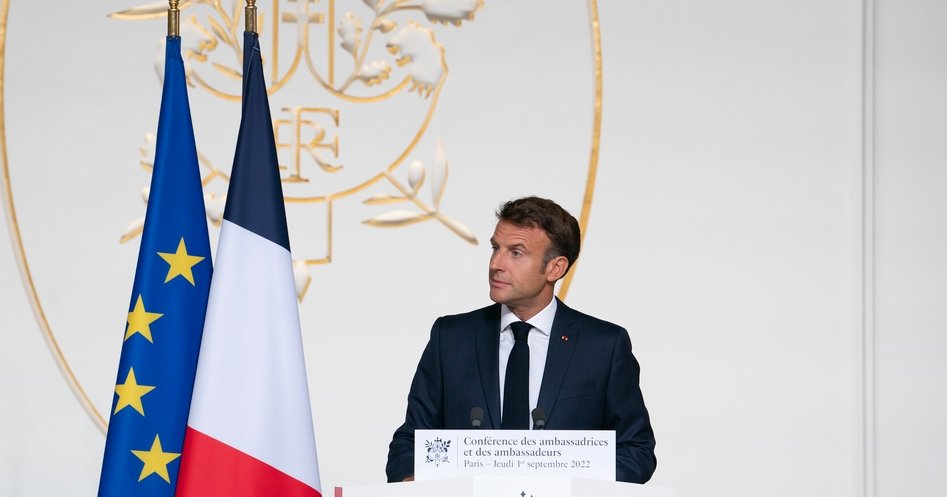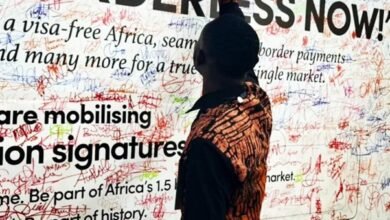Kag Sanoussi : « Today’s Africa is no longer one of silent spectators »
French President Emmanuel Macron’s recent speech to French ambassadors, in which he lamented a lack of recognition and elegance from some African countries towards France, has sparked intense controversy. More than just a statement, his words have triggered a wave of reactions across Africa, revealing deep shifts in Franco-African relations, the weight of shared history, and the aspirations of a continent striving for sovereignty…

By Kag Sanoussi*
To lie down, one must first sit
While criticism from various African nations was immediate and widespread, it resonated with some French citizens who share a sense of frustration and injustice. This duality highlights diverging perceptions shaped by history and differing expectations.
Frustration and misunderstanding in France
On the French side, reactions reflect a mix of exasperation and disappointment at what is perceived as a lack of recognition for France’s sacrifices in certain African countries.
Development aid and economic support
For some, France’s efforts, particularly in development aid, should elicit African gratitude. However, this perception is often contested in Africa, where such « aid » is viewed as self-serving investments benefiting France more than the African nations.
The role of French military bases
French military operations are seen by many in France as interventions aimed at stabilizing vulnerable regions and combating terrorism. The forced withdrawal of French troops from several African countries is experienced as an ungrateful rejection, despite the human lives lost and resources deployed.

A growing sense of rejection
Anti-French protests, flag burnings, and critical rhetoric towards France amplify feelings of injustice among some French citizens. Yet, these expressions often reflect a rejection of French policies rather than hostility towards the French people.
Many believe that France is unfairly blamed for all the problems in its former colonies, with no acknowledgment of its contributions, which are neither recognized nor appreciated. However, this resentment is not devoid of subjectivity, bias, and sometimes ignorance of local African dynamics and broader geopolitical stakes. It illustrates a real unease, reinforced by political narratives that sometimes oppose Africa and Europe instead of bringing them closer together.
Decoding African reactions: A manifesto of assertion
In several African countries, Macron’s remarks were perceived as condescending and out of touch with local realities. The immediate responses from leaders, intellectuals, media, and citizens reflect a continent firmly committed to redefining its role on the international stage.
A regained dignity
Today’s Africa is no longer one of silent spectators. It asserts its autonomy and sovereignty, seeking more equitable relationships. This vocal stance signals a break from paternalistic practices perceived as relics of a bygone era.
Shifting priorities
These critiques highlight the continent’s diversification of alliances, turning to partners like China, Russia, and Turkey, reflecting a refusal to depend on a single interlocutor. This growing multipolarity is reshaping France’s role in its former colonial empire.
The weight of history and memory issues
Franco-African relations remain profoundly marked by the scars of colonization and post-independence interventions. These wounds, still fresh, fuel a rejection of French policies deemed neocolonial.
Historical grievances: Why Macron’s words fell flat
Several factors exacerbate indignation over Macron’s speech:
Colonial legacy
France’s relations with many African nations are deeply shaped by colonization—a period that destroyed societies, exploited resources, and imposed political and cultural domination. For many, this history brought nothing good to Africa, making any expectation of « gratitude » misplaced, especially as the wounds of that era remain unhealed.
Africa’s contribution to France’s liberation
Thousands of African soldiers shed blood to free France in the two World Wars. These sacrifices, rarely highlighted, represent a debt that invalidates any reproach about an alleged lack of African recognition.
The remnants of Françafrique and perceptions of interference and paternalism
Many Africans from former French colonies criticize France for what they see as paternalistic or even neocolonial practices. Agreements such as those concerning the CFA franc or natural resources are perceived as benefiting France far more than African countries.

An opportunity to renew relations
While African reactions to Macron’s speech may appear critical, they should also be seen as an invitation to renewal. The fundamental question is: What must France do to maintain a presence in Africa’s evolving multipolar landscape? Or rather, how can France maintain a role in this transforming Africa?
Two options emerge:
- An equal and respectful partnership: Cooperation based on mutual respect, recognition of shared interests, and the abandonment of paternalistic and condescending practices.
- A progressive decline in French influence: If France fails to acknowledge current realities, it could permanently lose its privileged position on the continent.
Franco-African relations remain burdened by colonial scars and a persistent power imbalance, despite public statements to the contrary.
For France, these reactions should not be seen merely as sterile criticism, nor as a supposed lack of recognition. Instead, they should serve as an opportunity for objective introspection, incorporating multiple analyses to fundamentally rethink relations with former African colonies.
This requires breaking away from past frameworks where France monopolized interactions with these countries; genuinely moving beyond the vestiges of Françafrique (CFA francs, defense agreements, etc.); profoundly renovating its diplomacy, both in posture and practice; acknowledging the continent’s transformations; and finding its rightful place within Africa’s assertion of autonomy and sovereignty.
For African leaders, reaffirming sovereignty means accepting the costs of moving away from economic and political dependence, which benefits certain actors while compromising true emancipation.
Rethinking a shared history to build the future
France must leverage its real strengths: a long history with many African nations, a rich and ancient cultural interconnection, and diverse, skilled African diasporas that remain underutilized. It must break free from the narratives and analyses of intellectuals, journalists, and even some political actors who continue to present a distorted vision of African countries, reinforcing outdated perspectives.
It is now essential to embrace ongoing transformations and build an uninhibited, respectful, and forward-looking relationship.
The time is no longer for nostalgia or unilateral expectations but for listening, dialogue, and the invention of a new, more balanced, ethical, and mutually beneficial cooperation framework between France and the African nations concerned.
France and African countries stand at a historical crossroads. The profound shifts in their relations demand a reassessment of approaches and practices to transcend the burdens of the past and embrace a shared, dynamic, and equitable future.
The five levers for concrete action in revitalizing relations:
- New narrative: Daring a bold and respectful vision as the keystone of a shared future, grounded in the practice of central thought.
- Economic agreements: Dismantling rigid agreements to build an economy with responsible foundations and liberating audacity.
- Military cooperation: Uniting enlightened minds and committed hearts to reinvent partnerships aligned with expectations and global competition.
- Heritage and culture: Making heritage a living bridge where art and humanity merge in a boundless exchange and strengthened human dialogue.
- Disruptive diplomacy: Breaking away from colonial logic for diplomacy rooted in action, not just words; leaving the shadows to embrace the rhythm of the future.
These actions require strong political will and a transparent, demanding dialogue. They call for transcending historical and psychological barriers and short-term interests to envision a new partnership. This is not about mere adjustments but a genuine reinvention of relations between France and African nations.
Ambitious yet realistic, this project rests on sincere listening, individual and collective transcendence, concerted and respectful action, and a shared determination to turn these transformations into strengths.
If both parties fully commit, it will be possible to build a lasting, future-oriented, and exemplary cooperation model for the rest of the world.
*Kag Sanoussi is the president of the International Institute for Conflict Management and the initiator of the concepts of Negotiation Intelligence and Central Thought Practice.






